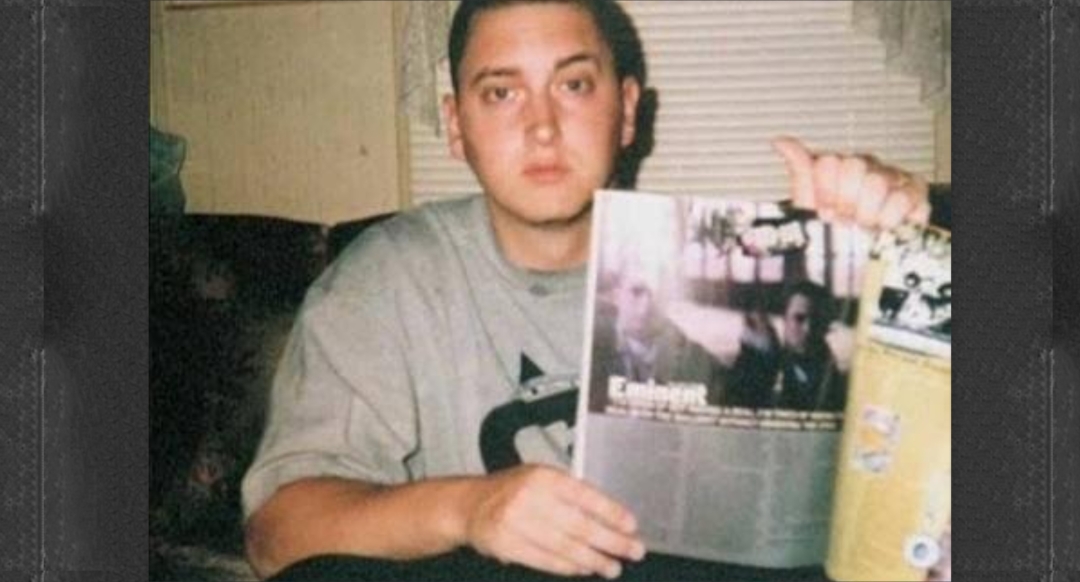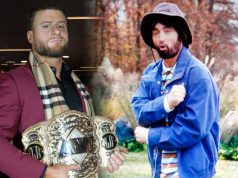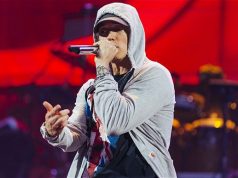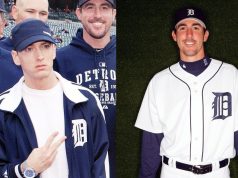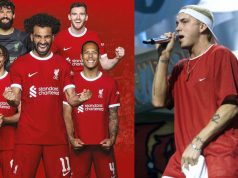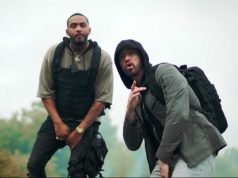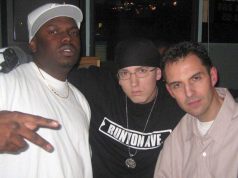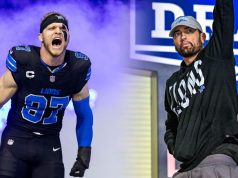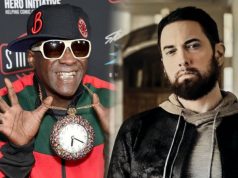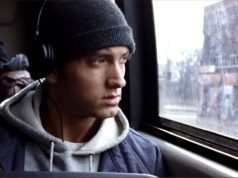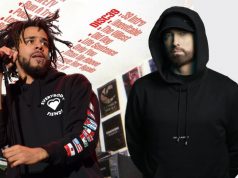The woman who has helped many artists to find their footing in the business side of hip hop is also the one who is responsible for catapulting Eminem into stardom with his first deal. It was not easy, she admits, and that’s why.
Wendy Day brokered legendary deals for Master P and Twista and helped Lil Wayne and Rass Kass, among others. The story of how inventive she got to attract attention to Eminem is well known, and Marshall mentioned it himself more than once. Most recently on the podcast with Mike Tyson.
Wendy Day talked about it more on The Forward Culture with Atlanta resident B High. He was interested in what was Wendy’s first impression on hearing Marshall’s bars. The Rap Coalition head remembers the feeling but moves to discuss business right away:
It was crazy. I knew he was gonna be big, but I didn’t know he was gonna be as big as Eminem got, no. Nobody knew. In fact, when I was shopping for his deal, the reason I did Rap Olympics, I couldn’t find a label that would sign a white boy who could rap. They just kept playing him to the left. When I first started shopping for his deal, I burned CDs in my home for his demo, and I dropped off packages for every label. Well, something went wrong in the burning process, and I burned blank CDs. All of his demo CDs were blank, and I didn’t know this. And only one label called me, which means only one label listened to that CD. It was Rich Isaacs and his Loud Records. He called me and said, “Iyo, did you mean for this CD to be blank?” How embarrassing. So I had to burn new CDs, take them back to everybody. But they all passed. Because at that point in time, Milli Vanilli had just been stripped of their Grammys, and Vanilla Ice was not doing as great as people wanted him to, in the black community. It was very hard for white rappers, and the labels were like, “No, we don’t want to be the one”. So we tried getting him a write up in The Source. We did “Unsigned Hype”. That didn’t help. We just couldn’t get him any traction. At that point in time, music was going from being lyrical on the underground, like backpack type rap, to gangsta and more mainstream, like bad boy type rap. And those of us who were the purest didn’t like that. So I decided to do an event called Rap Olympics to bring attention and press to the really lyrical guys, to show the world that they’re still there. And to showcase Eminem because he’s lyrical. And it worked. It got him signed to Dre. To Interscope, to Aftermath.
It was never like, if it doesn’t work — fuck it. It was like, okay, we’re gonna try this, if this doesn’t work, we’ll try something else. He was in Detroit, I was in New York. He was still trying. He pressed up, I think it was called “Infinite”, it was an EP, basically his demo, with five or six songs, and he was giving them out everywhere he went: to music conventions… It was a nine-month period of time from when I met him to Rap Olympics. It wasn’t like we just said, oh well, and sat back and did nothing. We kept trying to get him a deal. And then he finally got a deal at Aftermath. And then it took another two years before he came out. It seemed to take forever. It was crazy how long it took. It was frustrating. Remember, I’m the chick who pulls people out of bad deals when they get shelved, and my fear was that he was getting shelved. But knowing what I know now, I’m thankful. Because enough time passed for the industry to shift from “white guys can’t rap” to “oh, maybe it’d be kind of coll to have a white guy that can rap”. It was a different time when he was ushered in, and it led to his success. And he’s lyrical anyway, he would have stood out regardless. When his album finally dropped, there was a mixtape to drop first by Stretch Armstrong, and it featured Eminem. I remember when that dropped, the reaction to it was just like out of here. People were so excited that this new rapper had dropped. It just quelled all my fears, like the fear of “Oh, people won’t embrace him because he’s white. When they see him, they’ll reject him”. None of that.
Watch the segment below:


